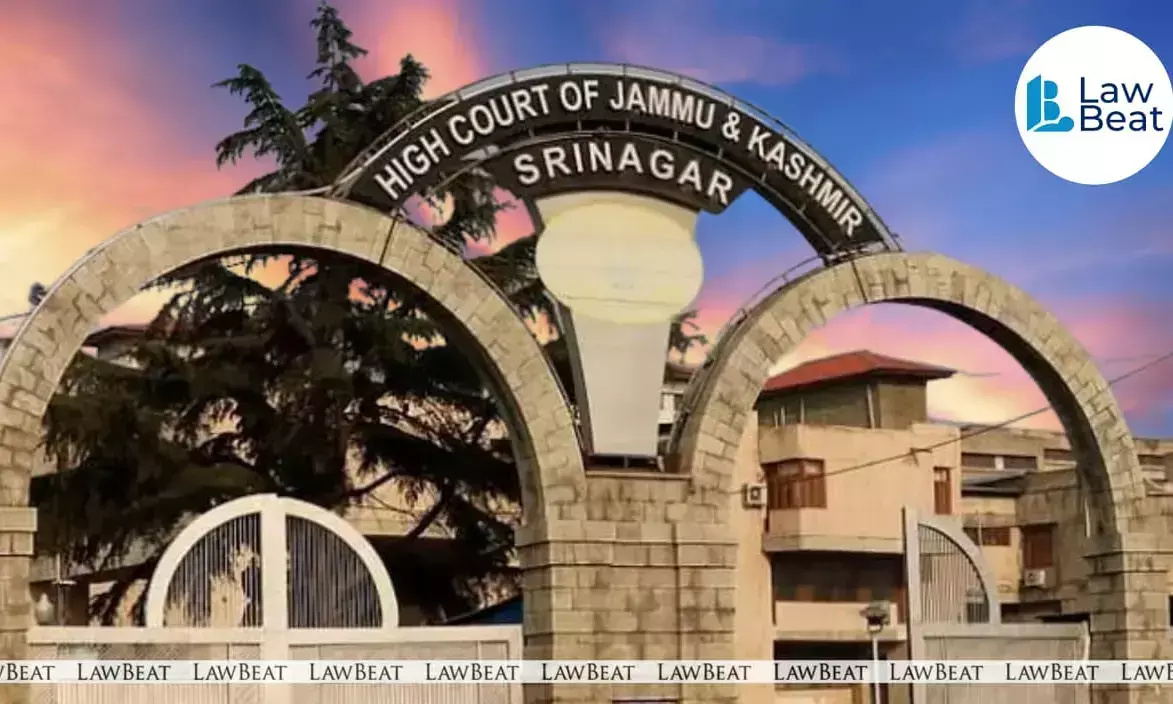J&K High Court Upholds PSA Detention of LeT Aide, Says Judicial Review Is Limited

J&K High Court stayed criminal proceedings against Article 370 film producers, holding that mandatory safeguards under the BNSS were not followed before issuing notice
The High Court of Jammu & Kashmir and Ladakh at Srinagar has upheld the preventive detention of a woman under the Jammu and Kashmir Public Safety Act, 1978, holding that courts cannot substitute their opinion for the subjective satisfaction of the detaining authority if the detention order is based on relevant material.
A Division Bench comprising Chief Justice Arun Palli and Justice Rajnesh Oswal dismissed the appeal filed by Shaista Maqbool, who had challenged her detention under Section 8 of the Public Safety Act (PSA) through an intra-court appeal.
The detention order, dated December 4, 2023, was passed by the District Magistrate, Bandipora, on the ground that her activities were prejudicial to the security of the Union Territory of Jammu and Kashmir.
Maqbool’s counsel, Mr. Mukhtar Ahmad Makroo, argued that the order was issued on vague and ambiguous grounds, with no specific mention of dates or incidents of alleged illegal activities. He further contended that the detaining authority had failed to record why ordinary criminal law was inadequate to prevent her alleged conduct, and that her representation against the detention was not considered in accordance with law.
The government, represented by Mr. Jehangir Ahmad Dar, Government Advocate, defended the detention order, submitting that it was based on verified intelligence inputs and complied with all procedural safeguards. The authorities claimed that the appellant was an Overground Worker (OGW) and supporter of the banned terrorist organisation Lashkar-e-Taiba (LeT) and that she maintained contact with Musaib Lakhvi, nephew of Zaki-ur-Rehman Lakhvi, one of the prime accused in the 2008 Mumbai terror attacks.
It was alleged that after Musaib Lakhvi’s death, she continued to share sensitive information about security movements with handlers based in Pakistan through encrypted applications and social media channels.
Examining the detention record, the Court noted that the dossier prepared by the Superintendent of Police, Bandipora, contained specific details of her alleged communications, pseudonyms, and online activity. The detaining authority, relying on this dossier, concluded that her actions were prejudicial to public order and security, and that normal penal provisions were insufficient to deter such covert conduct.
The Bench held that once a detaining authority derives subjective satisfaction on the basis of relevant material, the Court’s power of judicial review is limited to verifying procedural compliance and ensuring that the authority’s satisfaction is not based on extraneous or irrelevant considerations.
Justice Oswal, writing for the Bench, observed that “it is settled law that constitutional courts do not sit as appellate authorities in preventive detention matters. Once the authority has derived its satisfaction, the sufficiency or adequacy of material cannot be examined by the Court.” Citing Joyi Kitty Joseph v. Union of India (2025 INSC 327) and Rameshwar Lal Patwari v. State of Bihar (AIR 1968 SC 1303), the Court reiterated that the law only requires the existence of satisfaction by the competent authority not that the courts must agree with it.
On the argument that the detention was based on vague grounds, the Court found that the detaining authority had clearly named the individuals with whom the appellant was in contact and had detailed the nature of her alleged role in facilitating the operations of banned groups. It therefore rejected the claim that the grounds of detention were ambiguous.
Addressing the contention that the authority failed to justify why preventive detention was preferred over prosecution, the Bench cited Sasti v. State of West Bengal (1972) 3 SCC 826, which held that preventive detention can be valid even when acts constitute offences under ordinary law, if the authority believes that ordinary legal remedies would be insufficient to prevent recurrence.
The Court reasoned that in cases involving secret and encrypted communications, obtaining admissible evidence for prosecution may be difficult, making preventive detention necessary to safeguard public order.
The judgment also records that the appellant was served with all detention documents, acknowledged their receipt, and made a representation which was duly considered by the Advisory Board.
After granting her a personal hearing, the Board upheld her detention on December 27, 2023, finding sufficient cause for continuation.
Concluding that there was no procedural lapse or constitutional violation, the Division Bench dismissed the appeal, affirming that the detention was lawful and based on relevant material.
Case Title: Shaista Maqbool v. Union Territory of Jammu & Kashmir & Anr.
Bench: Chief Justice Arun Palli and Justice Rajnesh Oswal
Date of Judgment: November 6, 2025
